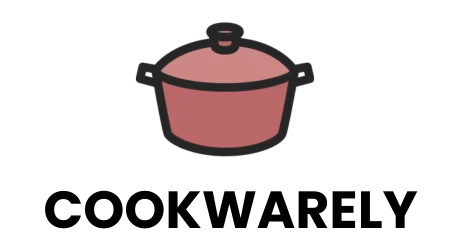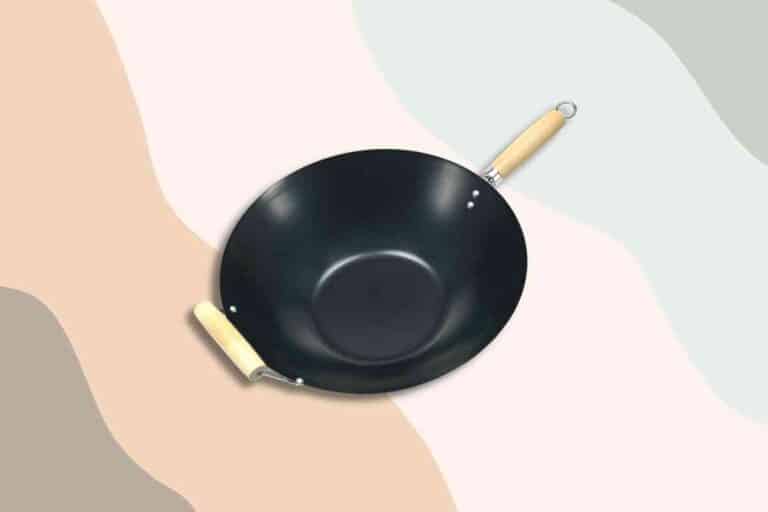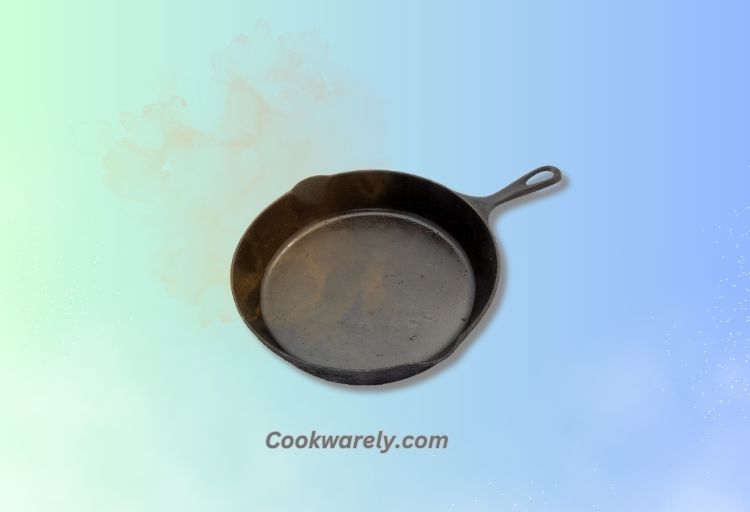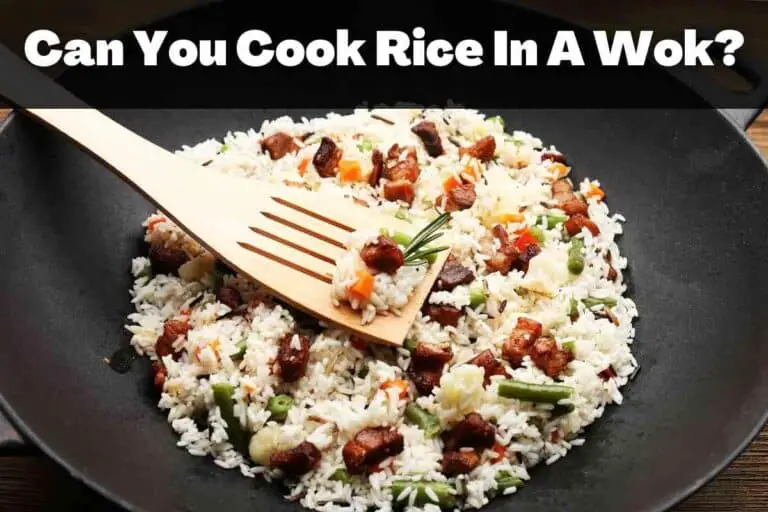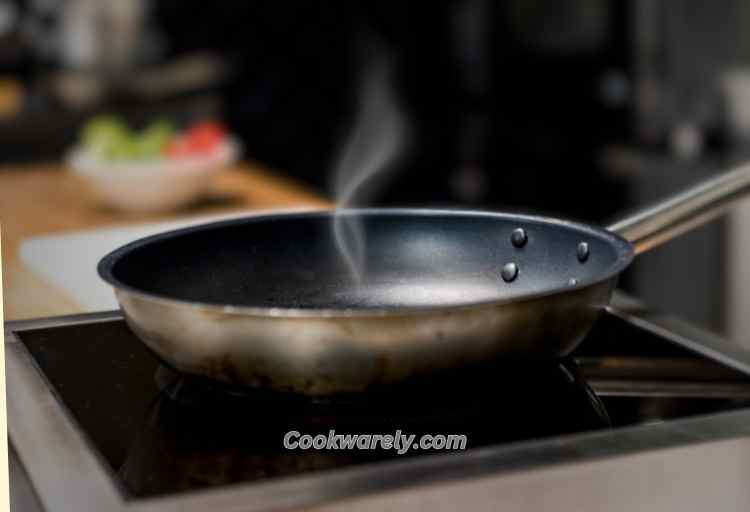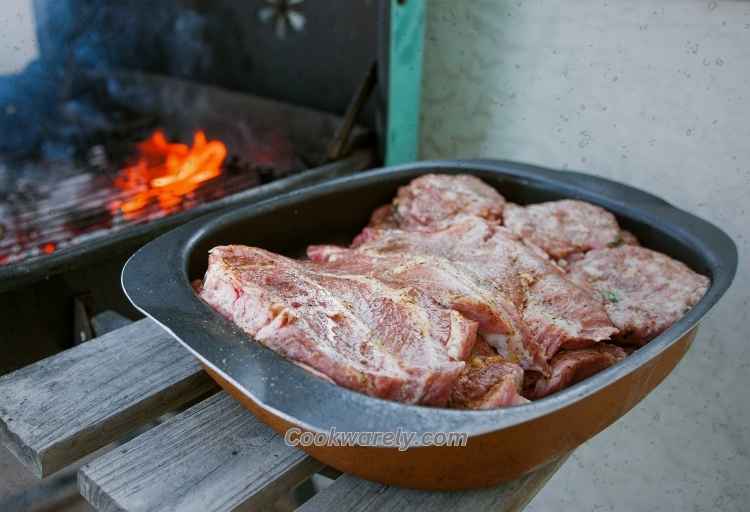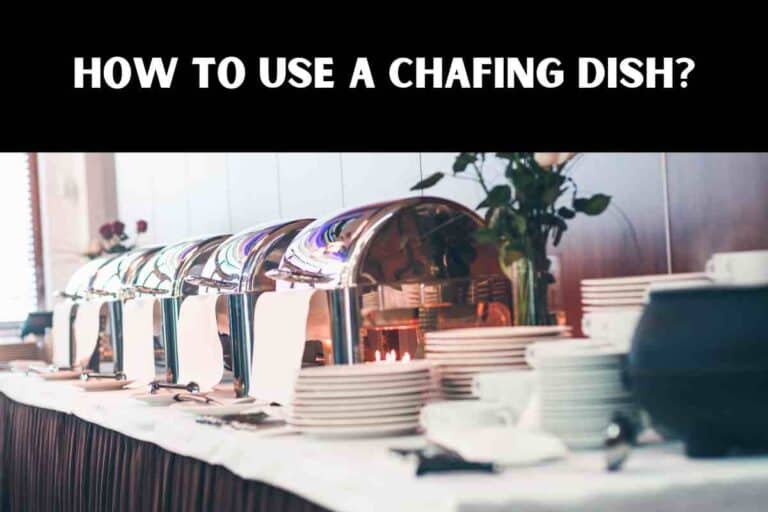Can You Fry In Aluminum Cookware? Yes!
When it comes to cookware, the choice of material can significantly impact your cooking experience. Aluminum cookware is a popular choice, and you might be wondering if it’s suitable for frying.
Yes, you can use aluminum cookware for frying and deep frying. Frying in aluminum cookware is feasible. Aluminum’s rapid heat conductivity makes it suitable for frying, but caution is advised with acidic foods to prevent reactivity. Proper care and choosing quality aluminum pans ensure safe and effective frying.
- Advantages and Versatility: Aluminum cookware is prized for its excellent heat conductivity, affordability, and lightweight design. It’s a versatile choice, suitable for various cooking tasks, including frying.
- Reactivity and Durability: Aluminum cookware can react with acidic foods, potentially altering the taste. It’s essential to handle it carefully, as it’s susceptible to dents and scratches.
- Safety and Tips: To ensure safe frying, use mitts for hot handles. Preheat the pan, employ gentle utensils, and control heat levels. Avoid overcrowding the pan for even frying results.
11 Considerations When Frying in Aluminum Pans
| Consideration | Description |
|---|---|
| Heat Conductivity | Aluminum’s excellent heat conductivity is advantageous for frying, as it quickly and evenly distributes heat, ensuring food cooks evenly. |
| Affordability | Aluminum cookware is cost-effective and readily available, making it an affordable option for home cooks. |
| Weight | Aluminum pans are lightweight, making them easy to handle and maneuver in the kitchen. |
| Versatility | Aluminum cookware is versatile and suitable for a wide range of cooking tasks, including frying, sautéing, and more. |
| Reactivity | Aluminum may react with acidic foods, potentially altering the taste of the dish. Precaution is needed when frying such foods. |
| Durability | Aluminum cookware can be prone to dents and scratches, so care must be taken to avoid damage. |
| Handle Temperature | The handle of an aluminum pan can become hot during cooking. Using an oven mitt or handle cover is advisable for safety. |
| Preheating | It’s important to preheat an aluminum pan before adding oil and food to ensure even cooking and prevent sticking. |
| Utensils | Using wooden or silicone utensils is recommended to avoid scratching the surface of the pan. |
| Heat Control | Aluminum pans heat up quickly, so careful heat control is necessary to prevent burning or overcooking. |
| Overcrowding | Overcrowding an aluminum pan can lower the temperature and affect the frying process. It’s best to fry in batches if needed. |
Key Takeaways
- Aluminum’s rapid and even heating makes it ideal for frying.
- Be cautious with acidic foods, as aluminum may affect their taste.
- Aluminum cookware can dent and scratch, requiring careful handling.
- Hot handles require mitts, preheat the pan, use gentle utensils, and avoid overcrowding for even frying.
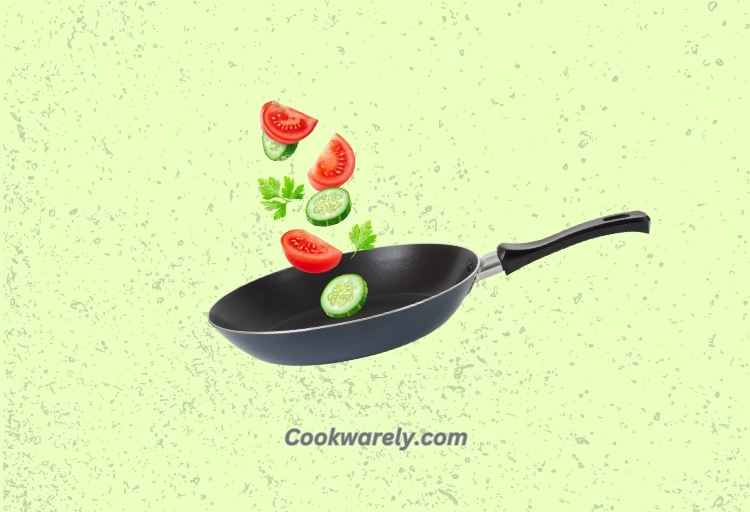
Can You Fry In Aluminum Cookware?
You can fry in aluminum cookware. Aluminum’s exceptional heat conductivity makes it well-suited for frying, enabling rapid and even heating, crucial for achieving crispy and delicious results.
However, it’s important to exercise caution when frying acidic foods to prevent any potential taste alterations.
Additionally, due to aluminum’s relatively soft nature, it can be susceptible to dents and scratches, necessitating careful handling.
To ensure safe and effective frying, use oven mitts for hot handles, preheat the pan, employ gentle utensils, and avoid overcrowding for consistent frying outcomes.
What’s Good About Aluminum Cookware?
First, let’s talk about why people like using aluminum pans:
- Fast Heating: Aluminum pans heat up quickly, which is great when you want to start cooking fast.
- Affordability: They don’t cost a lot of money, making them budget-friendly.
- Lightweight: Aluminum pans are easy to handle because they’re not heavy.
- Versatility: You can use them for various cooking tasks, from frying to sautéing.
Types of Aluminum Cookware
1. Anodized Aluminum Cookware
Anodized aluminum cookware stands out for its durability and non-stick properties.
These pots and pans are also remarkably easy to clean, making them a favorite among chefs and home cooks alike.
What’s more, they boast exceptional heat distribution, ensuring your culinary creations are cooked to perfection.
Anodized aluminum is also easy on the eyes, with an attractive appearance that can elevate your kitchen aesthetics.
2. Cast Aluminum Cookware
Cast aluminum cookware is a versatile and lightweight option.
Its high conductivity and ease of manufacturing make it an excellent choice for various cooking techniques, including frying and baking.
Modern aluminum cookware is often coated with a non-stick or ceramic layer, enhancing its performance.
Whether it’s pressed, cold-forged, or cast from molten aluminum, this type of cookware offers a range of benefits.
3. Non-Stick Aluminum Cookware
In the culinary world, aluminum cookware reigns supreme.
According to the Cookware Manufacturers Association, aluminum cookware accounted for a substantial 60 percent of all sales in the US in 2015.
What sets it apart is its remarkable thermal conductivity, which makes it highly efficient in the kitchen.
In terms of heat conductivity (measured in watts per meter kelvin), aluminum is about sixteen times more efficient than stainless steel.
This efficiency plays a crucial role in achieving consistent results in your frying adventures.
Aluminum vs. Other Cookware Materials
Aluminum vs. Stainless Steel Cookware
Comparing aluminum to stainless steel cookware, there are distinct differences to consider.
Aluminum cookware is often more budget-friendly and excels at conducting heat. It also tends to feature a non-stick surface, which can make cooking and cleaning easier.
However, it’s essential to note that aluminum is easier to scratch than stainless steel and may be more susceptible to rusting over time.
Aluminum vs. Ceramic Cookware
Choosing between aluminum and ceramic cookware depends on your specific cooking needs.
Hard anodized aluminum cookware is a top choice for professional chefs, as it doesn’t react with the food it cooks.
On the other hand, ceramic cookware is often considered a healthier option. Both materials typically feature a non-stick layer on the cooking surface, enhancing their usability.
Aluminum vs. Teflon Cookware
The aluminum vs. Teflon cookware debate often comes down to personal preference.
Aluminum is favored for its affordability, lightweight design, and excellent heat conductivity. In contrast, Teflon cookware, with its non-stick coating made from polytetrafluoroethylene, has some drawbacks to consider.
It can emit potentially dangerous fumes and is prone to scratching when used with metal utensils. Teflon cookware also tends to have a shorter lifespan, typically lasting only one or two years.
Things to Be Cautious About Aluminum Pans
However, there are some things to be cautious about when frying in aluminum pans:
- Reactivity: Aluminum can react with certain acidic foods, which might change the taste a bit.
- Durability: Aluminum pans are not super tough. They can get scratched or dented if you’re not careful.
- Handle Carefully: The handle can get hot, so be sure to use an oven mitt or a panhandle cover when touching it.
Tips for Safe Frying in Aluminum Pans
Here are some easy tips to make your frying experience with aluminum pans safe and tasty:
- Choose the Right Pan: Pick a good-quality aluminum pan with a thick base for even heating.
- Preheat Carefully: Make sure to preheat your pan before adding oil and food.
- Avoid Acidic Foods: If you’re concerned about reactivity, avoid frying highly acidic foods for long periods.
- Use Wooden or Silicone Utensils: These are gentler on your pan and won’t scratch it.
- Keep an Eye on Heat: Aluminum pans heat up quickly, so keep an eye on the heat level to prevent burning.
- Don’t Overcrowd: Don’t put too much food in the pan at once; it can lower the temperature and affect the frying.
FAQs
Can I Use Aluminum Cookware for Frying at High Temperatures?
While aluminum cookware is excellent at conducting heat, it’s essential to be cautious when exposing it to very high temperatures, as it can release fumes that are not safe to inhale. Keep the heat at a moderate level for deep frying.
How Can I Prevent Food from Sticking to Non-stick Aluminum Cookware?
To maintain the non-stick properties of your aluminum cookware, use wooden or silicone utensils to avoid scratching the surface. Season your aluminum pan before use to create a non-stick surface.
When Should Aluminum Cookware Be Replaced?
Regularly inspect your aluminum cookware for signs of wear and tear, such as warping or dents. If you notice significant damage, it may be time to replace it to ensure safe and effective cooking.
Conclusion
Finally, aluminum cookware is an excellent choice for frying and other cooking duties. Its great heat conductivity, low cost, and versatility make it popular among chefs and home cooks alike.
However, it is critical to understand its benefits and drawbacks, including the possibility of reactivity with particular components and the necessity for adequate maintenance.
With the proper care and safeguards, you may enjoy effective deep frying with aluminum cookware and easily create tasty foods.
So, whether you’re frying up crispy chicken or sautéing vegetables, savor the joy of cooking with the versatile and reliable companion that is aluminum cookware. Happy cooking!
